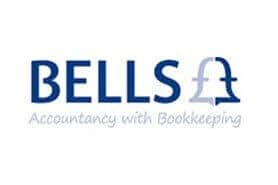During periods of economic downturn businesses often look to cut costs to weather the storm. This is a sound strategy, and there are many different costs that you can reduce to make sure that you are streamlining your business sustainably, but it is key that you cut costs intelligently to ensure that you’re still able to provide your services to your customers. When reducing costs it is critical to consider the knock-on effect and plan for what this reduction will mean for your business.
1. Save on your premises
The cost of your premises, especially larger spaces like prime commercial real estate or warehouses, can be a massive cost for a business. Consider renegotiating the terms of your lease with your landlord to get a better price. Remember, during times of uncertainty they’ll be experiencing the same pinch and the same pressures. It is possible they’ll be amenable to a reduced rent in exchange for keeping a reliable tenant. If not, the worst they can say is no. You could also assess if the space and location is meeting your needs and consider moving to a cheaper location. Moving will involve an upfront cost but will then save you month on month in the future. You might find that you can vastly reduce the amount of space you need by offering work from home options to your employees. This will reduce general operational costs such as heat and power in addition to reducing or even eliminating the cost of rent.
2. Reduce your marketing spend
During tough times, marketing is often one of the first things cut. This is not always advisable as you want to keep your business visible and advertise your services to customers. If your competition are cutting their marketing, then continuing to advertise will give you an advantage. However, there are still ways you can reduce the cost of marketing without impacting your cashflow. If it suits your industry, reducing your traditional marketing in favour of modern solutions can work wonders. Transition from expensive print ads to social media to generate buzz and word of mouth recommendations. This is especially worthwhile if your business already has a web presence. You may want to consider using social media to offer promotions or deals to encourage people to follow and enquire.
3. Modernise your accounting
There are now a range of accountancy software options that you could consider using to help streamline your business’ finances. These programs are an ideal way to keep track of expenses, unpaid invoices, and payments to help you stay on top of your cashflow even with your new reduced costs. Some features allow you to set dates for invoices and send automated reminders to clients to reduce the risk of overdue payments. The software can also keep track of when your own payments are due to ensure that you are not hit with late fees or charges for going over the limit on a business credit card for example. Furthermore, handling transactions digitally can save on paper and the associated costs of printing and scanning, while also being easier to use. Bells Accountants are a Xero gold partner and we can advise you on this software.
4. Reduce your interest payments
For almost any business, interest is a continual expense that needs to be dealt with every month and can sometimes feel overwhelming. There are ways to reduce the amount of interest you are paying. While in some cases a lender or provider will have set your interest rate, you might be able to renegotiate. If you can find a competitor quoting a lower rate for insurance, for example, taking that to your current provider might be a useful negotiating tool for a better rate. If you have sufficient cash reserves, you might consider paying down debt with high interest such as a business credit card to reduce the amount you’re paying back every month.
5. Make a new business plan with your reductions
Make sure that you see lasting benefits from your careful cost reductions by creating a new business plan that takes them into account. You may even find further places where you can cut expenses. Having a long-term plan will also help your changes feel ‘real’ and encourage you and your team to commit to them. It is also a safe way to forecast if these reduced costs are feasible, and if you might run into any issues down the line. Having the changes properly integrated into a realistic, long-term plan is essential to reducing your business costs into the future.
Reducing costs in your business can be a daunting prospect, but it can be achieved with careful planning and financial know-how. If you’re struggling, consider engaging the services of a professional accountant to assist you with this process. Bells Accountants are an approachable team of accountants in London here to assist you with all of your financial needs. Call us on 020 8850 0700 or send an email to to find out more.


